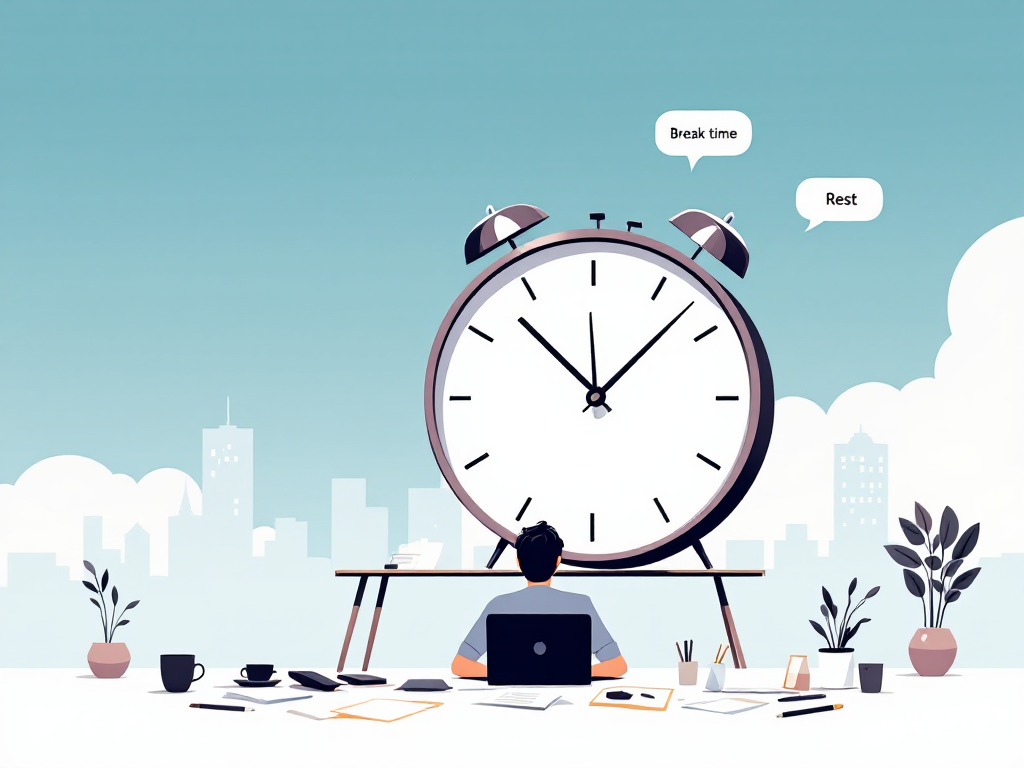
Why Breaks Boost Productivity in Fast-Paced Jobs
The Fast-Paced Jobs Where Breaks Increase Productivity
Story Introduction
Meet Lisa, a junior developer at a busy tech startup. One day it’s coding, meetings, deadlines. One afternoon, when she's scrambling to solve a major bug before the sun sets, the stricture of stress settles into her shoulders. Her head is foggy and her progress freezes up. Fed up, Lisa walks away for a minute. She goes outside for a walk, inhaling the clean air, and giving her mind a chance to reset. But remarkably, upon her return, the answer she’s been struggling to find finally falls into place. This straightforward act not just solved her pressing problem but also triggered an understanding how the secret lies in pausing more and better in a high pressure context. “Constant activity is glorified, and Lisa learned that sometimes stepping back can push you forward.
My Personal Experience & Real-World Context
Lisa’s experience is a common one in fast-paced workplaces, especially in tech companies where the pace is unrelenting and the demands are high. At first, like many of her coworkers, Lisa thought that the fastest route to her goals was to knuckle down and work continually without breaks. At her company, the culture was about hustle and urgency, cronies who stayed up to work past the evening and ate lunch at their desks.
However, Lisa's sudden decision to take a break was against the unspoken rules governing the office. The majority of her colleagues were resistant to breaks, fearing they would come off as lazy or non productive. However, Lisa observed those who regularly made time for themselves appeared less stressed and more creative. This observation prompted her to think about the larger perception of breaks in these types of settings. Despite her initial reluctance, she started to view breaks not as an admission of laziness, but as valuable tools for improving productivity and well-being. The insight that moments of strategic pause could facilitate clearer thinking and broader ideas dramatically changed how she worked.
Key Insights & Actionable Takeaways
The science of breaks is somewhat cut and dry: taking breaks and stepping away from tasks can greatly increase your focus and productivity. Research indicates that brief breaks throughout your workday help maintain uniform performance — without breaks, performance declines over time. Some practical tips for integrating breaks into a hectic schedule include:
- Set a Timer: Implement the Pomodoro Technique — which sets a timer to a period of focused work (generally 25 minutes) followed by a quick break (usually five minutes). This rhythm prevents fatigue and keeps the energy high.
- Movement: Get up and stretch or take a short walk during breaks, it helps shake off the tension and you are able to think clearer. Moving physically can lift mood and promote circulation, which contributes to cognitive performance.
- Mental Detachment: Spend a few minutes thinking about something other than work, so that you can feel your mind reset. Mindfulness exercises, for example, or short meditative practices, can reset your mental clarity, for instance.
Neglecting break can build burnout, low creativity, and low efficiency. To prevent these mistakes, I suggest planning regular breaks in your day and treating them as essential pieces of your work routine. This way, you can stay productive without burning yourself out.
Your moment of success or 'Aha' moment
Lisa found that taking breaks during her day created a leap forward in a project that had sat stagnant for several weeks.
Despite the pressure to continue working, once she took a break and let her mind unwind, she viewed the issue with fresh eyes and was able to devise an innovative solution that amazed her team. Over time, she saw quantifiable increases in both her productivity and creativity. Her work-life balance was better too, recharging her on what she did do to be fresh and alive. That helped create a more joyous work culture, as her approach rubbed off on teammates hucking it up and checking their balance at the door, making them rethink the way they went about their work.

This success story illustrates the power of breaks — both for innovation, and for mental health. With this implementation of pause, not only did Lisa improve on her work front, but she also evolved into a much stronger and balanced individual on the personal front. Her story exemplifies how small changes in routine can greatly influence both career and physical health.
Career Advice & Interview Tips
In a job interview, having a unique strength that sets you apart from the other candidates is helpful. It shows knowledge of productivity and personal well-being, which are two of the most sought-after skills by an employer. So when approached regarding break strategies in the interview process, try to discuss them as part of your professional development. For instance, “I’ve discovered that I communicate more effectively and produce high-quality work consistently when I take broken, structured breaks during the day and it’s something that works well for me.” This way, you are focusing on taking action, which shows how interested you are when it comes to deal with your stress or maximizing your performance.
Experts say to tell won with potential employers a break management strategies project successful outcomes. Sharing how the time away resulted in creative concepts or enhanced efficiency would even convey that much better the case for the value of breaks. Not only does it highlight your capacity for effective time management but it also puts you in the position of championing more healthful work practices and, depending on the industry, that can be a major selling point.
Wrapping Up & Calling The Audience
Taking breaks in fast-paced environments go beyond being beneficial — they are required for maintaining productivity and mental health. The takeaway: Take guesses frequent breaks, boost focus and creativity, and improve work-life balance. Have you worked to use breaks creatively throughout your career? Tell us your stories or questions in the comments.
Want to know how to utilize breaks for career growth? Please contact OfferGenie or visit our website for more information on how to help achieve a better work-life balance and improve productivity. *Sensitive Letter:* Sometimes the best way to move forward is to take pauses.